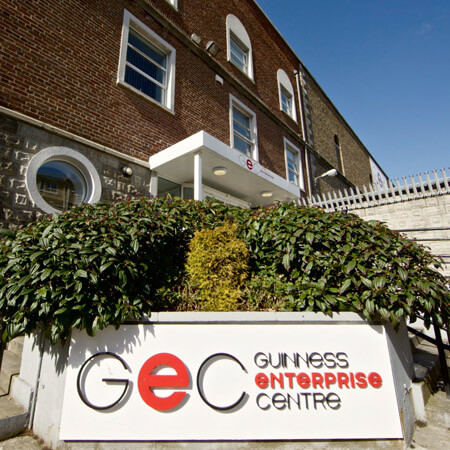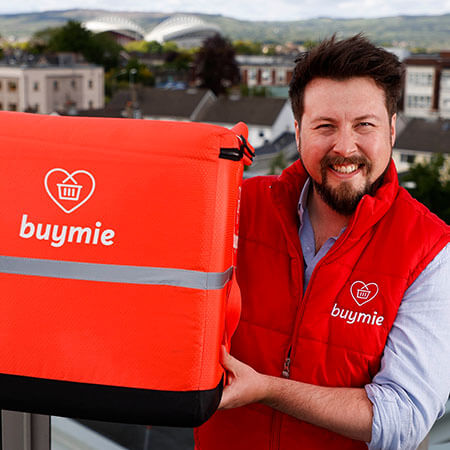Why to base your business in The Liberties
The Liberties is one of Dublin’s most characterful and historic districts. It owes its name to the fact that it was originally outside the jurisdiction of the city. So it was free to follow its own rules. In many ways, it’s still doing that today.
From the distillery district to a digital hub
In medieval times, The Liberties was an area of the city in which brewing, distilling, tanning and other traditional industries were located.
The world famous St. James Gate brewery, home of Guinness, continues the tradition. Meanwhile, distilling is enjoying a big revival in the area, with the arrival of the Pearse Lyons, Teeling, Roe & Co and Dublin Liberties distilleries.
In recent years, the whiskey makers have also been joined by many young digital businesses, agencies and startups – all of which are eager to get set up in an area that offers plenty of space and opportunities to up-and-coming companies.
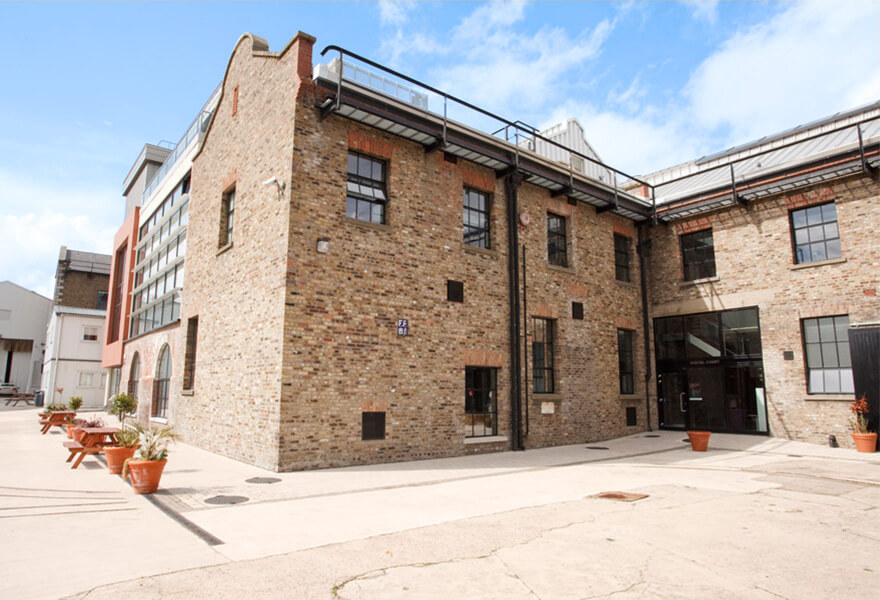
The Digital Hub campus consists of 9 buildings, housing almost 100 companies, who employ over 700 people.
What The Liberties has to offer
Stephen Coyne is the programme co-ordinator of The Liberties Business Area Improvement Initiative. He reckons, one of The Liberties’ most attractive features for startups is the sense of energy about the place.
“It’s a very dynamic area,” he says. “If your business is based here, the streets are alive around you. You’re in the midst of a living community, a living neighbourhood.”
He thinks it’s the opposite of the anonymous business districts that you come across in some cities. “It’s a much more diverse and characterful area,” he says. “You have the whole richness of a city centre location. It’s probably one of the most distinctive areas of the city in that regard.”
The sense of creativity, of industry, in the area, it’s infectious. And you certainly feel it.
Stephen also points out that The Liberties is a culturally rich neighbourhood too. “It’s got a long history and heritage behind it,” he says. “It brings together a lot of the qualities that people look for in the perfect neighbourhood.”
Some of these qualities are the result of carefully planned development.
Stephen says: “We’ve spent a huge amount on improving infrastructure and the quality of the streets. There are beautiful new parks in the area. People have the amenities they’re looking for now.
“They can go out onto the commercial shopping streets and they’re full of shops and services and cafés and restaurants. We’ve got a Michelin-starred restaurant now. We’ve got that whole range of attractions and businesses that you would get in any city centre area.”
Dublin 8 work spaces
With a background in architecture and town planning, Stephen Coyne is a connoisseur of the area’s buildings. Many of them date from the Victorian era and are now being rejuvenated and repurposed.
They are the source of much of The Liberties’ characteristically gritty charm. The old power station, which used to produce electricity for the Guinness brewery, is now home to a distillery. Another distillery is housed in an old church, yet another in a former tannery.
And wait until you hear about the historic buildings that house the area’s modern work spaces, which play a key part in the city’s startup ecosystem. Nothing is quite as it seems here in The Liberties.
The Masonry
At The Masonry, a former Edwardian office and warehouse now provides some very attractive serviced office space on Thomas Street – one of the Dublin 8’s main arteries.
Once used to store seed and grain, this huge building offers six floors of flexible work spaces. These include a mixture of private office spaces, co-working spaces and hot desks – as well as communal kitchen facilities and utilities.
The Masonry is part of Iconic Office, which runs more than a dozen office spaces throughout the city.

The Masonry: A former seed warehouse, now a lively workspace enhancing inspiration and creativity.
The Digital Hub
On and around Thomas Street, you’ll also find The Digital Hub’s campus. This community-centric startup space offers tech and digital media companies a place to scale and grow. It welcomes both one-man shows and bigger, growing businesses.
With private offices, shared spaces, meeting rooms and collaborative breakout areas, it has something to suit every business. It offers startup events and workshops too.
The Digital Hub campus is made up of several renovated buildings, including a townhouse, a grainstore and an old distillery windmill. There’s even a café inside a container.
Guinness Enterprise Centre
Then, there’s the crown jewel of Dublin 8’s work spaces: the Guinness Enterprise Centre – or GEC, for short.
Based on Taylor’s Lane, which is in the network of cobbled streets behind the Guinness Storehouse, it has doubled in size over the past few years to accommodate an ever-growing number of startups, micro enterprises, social enterprises and small businesses.
It is also a serial winner of the highly prestigious ‘World’s Top University Associated Business Incubator’ award. Business Development Manager, Ronan Donnelly, stresses the importance of GEC’s ties with a number of international universities.
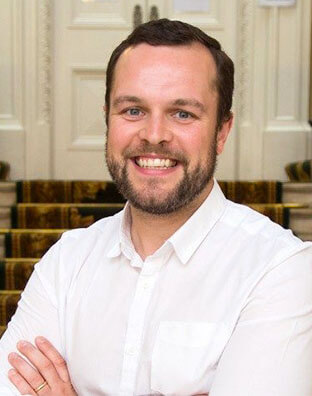
Ronan Donnelly: Client & Business Development Manager at GEC.
“We give them the chance to work on real-life cases as part of their course,” he says. “And those cases come directly from the startups here at the GEC.”
The ecosystem that startups can plug into at the GEC is another key attraction – and one with an international dimension: “We have links with Enterprise Ireland, who have a global reach through the IDA. Our consultants have global contacts too,” Donnelly says.
Some of GEC‘s consultants have 30 years experience and are experts in getting products into the market, creating marketing strategies and working on financials.
“It’s also being able to provide the best mentorship and guidance for the startups here. We really cover all the areas to make sure that our startups are in the best position to be successful,” he explains.
“Whether that be going for a seeding or further funding, and building either toward an exit or towards growth.”
GEC offers members much more than office space – it also offers support, exposure and networking opportunities. Then, there are extra perks like yoga, hillwalking and skills training too.
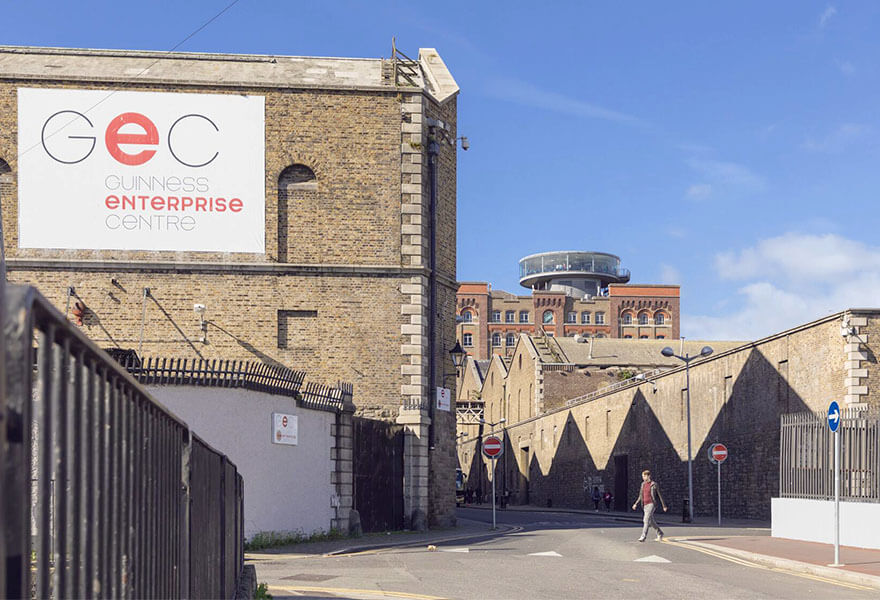
The GEC has supported the creation of over 600 start-ups.
A unique setting for unique startups
There are other coworking spaces coming on stream all the time too. That’s because The Liberties is becoming more and more popular with businesses looking for a place they can call home. Donnelly speaks highly of it.
“The area breeds creativity,” he says. “NCAD, one of the top colleges for creative design, is here. Vicar Street, the distilleries, the country’s top tourist attraction is here. The sense of creativity, of industry, in the area, it’s infectious. And you certainly feel it when you’re walking through.”
Must be that Liberties effect again: welcome to the community that’s always made up its own rules.
Discover more of Dublin’s work spaces in our guide to co-working and enterprise centres.

